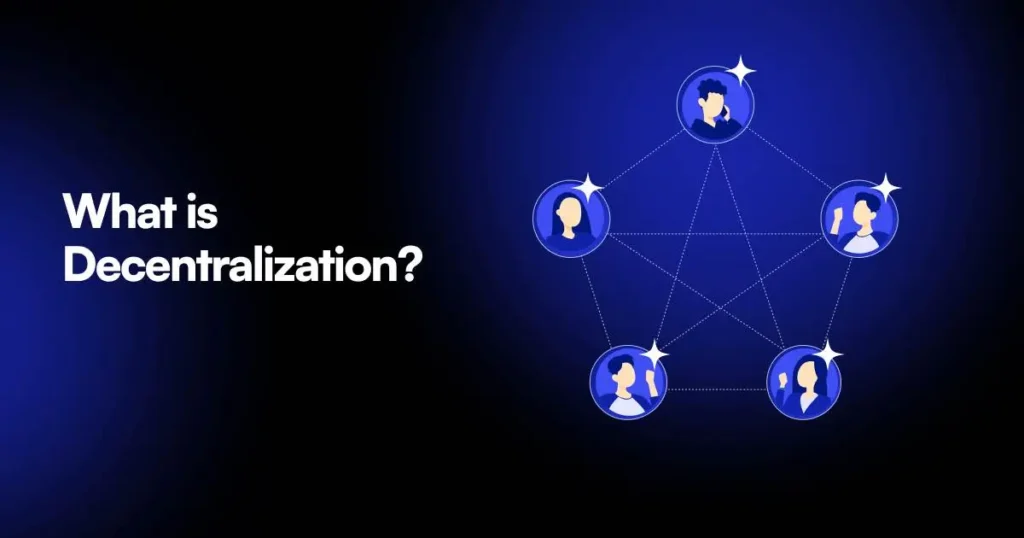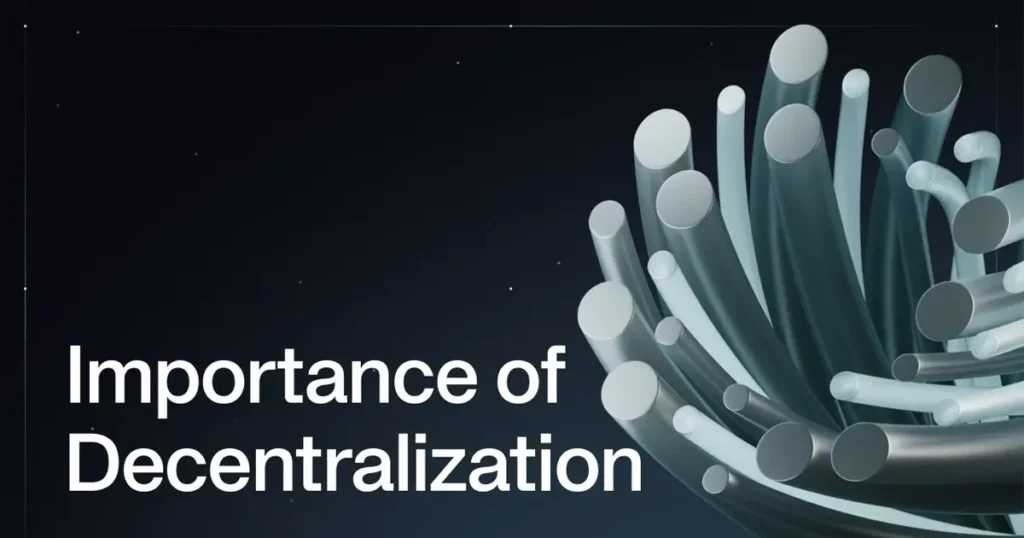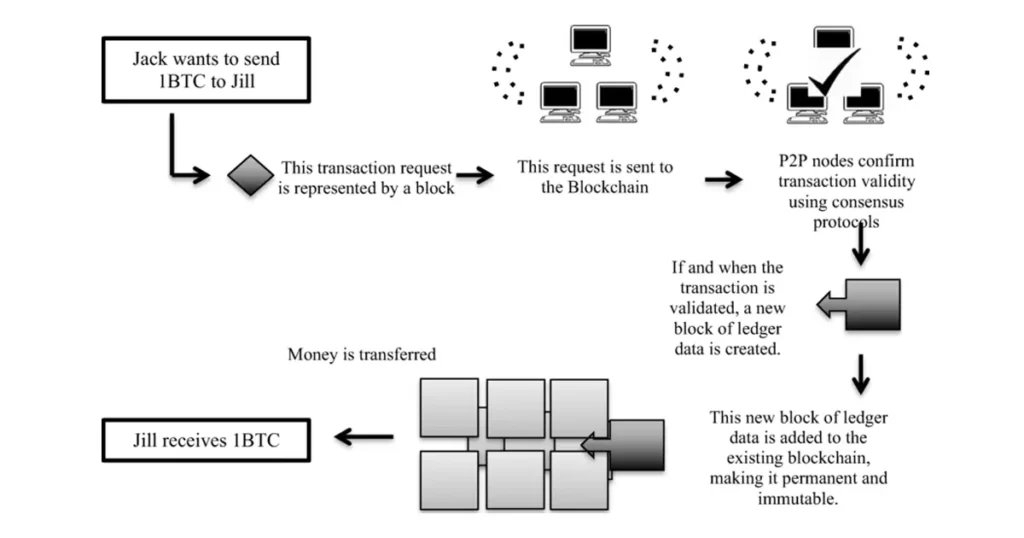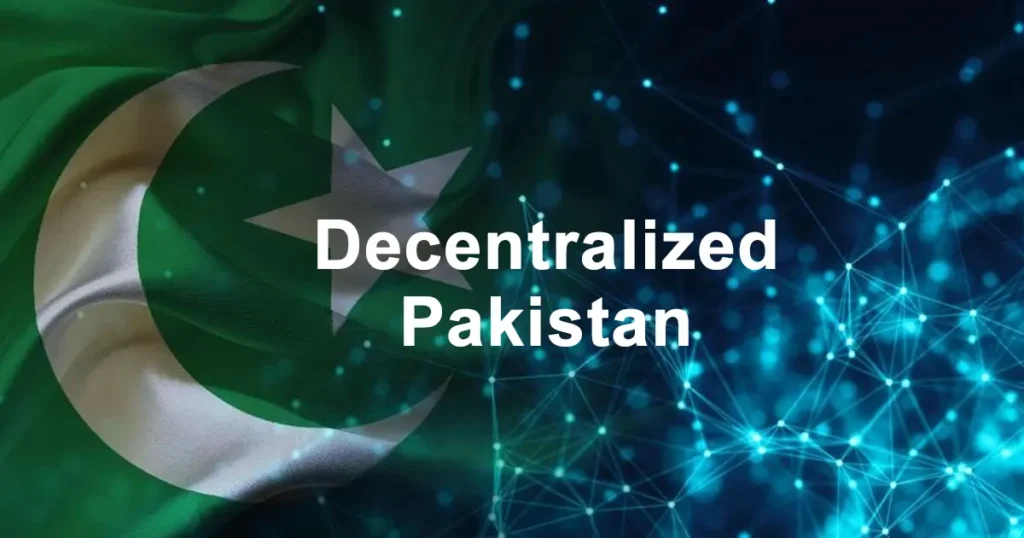In today’s fast-evolving digital world, decentralization has become a buzzword, especially with the rise of cryptocurrency, blockchain technology, and Web3 applications. But what exactly does decentralization mean, and why is it so crucial? This blog explores the core concept of decentralization, its impact on various industries, and how it can shape the future—especially in a country like Pakistan, where centralized systems often face inefficiencies.

What is Decentralization?
Decentralization refers to the distribution of power, control, and decision-making from a central authority to multiple independent entities. Instead of relying on a single organization, decentralization allows various stakeholders to participate in decision-making, making systems more transparent, efficient, and resilient.
In a centralized system, a single government body or corporation controls everything. However, in a decentralized system, power is spread among individuals, communities, and automated networks, reducing the risk of corruption, censorship, and inefficiency.

Why is Decentralization Important?
Decentralization is crucial because it removes unnecessary middlemen, increases transparency, and empowers individuals. Key benefits include:
- More Freedom & Control: Users manage their assets and data without central interference.
- Increased Security: Distributed data reduces hacking and corruption risks.
- Greater Transparency: Every transaction is recorded openly, reducing fraud chances.
- Reduced Costs: Removing middlemen leads to faster and cheaper transactions.
Example in Pakistan: Traditional banking in Pakistan often involves long processing times and high fees. With decentralized cryptocurrency wallets like Binance or Trust Wallet, Pakistanis can store and transfer money internationally without relying on banks or paying heavy transaction charges.

Types of Decentralization
- Political Decentralization: Power is distributed among local governments rather than a single federal authority.
- Business Decentralization: Companies use decentralized governance where stakeholders make democratic decisions.
- Financial Decentralization (DeFi): Financial transactions occur directly between individuals using blockchain-based platforms instead of banks.
- Transactional Decentralization: Peer-to-peer transactions enhance efficiency and security by eliminating intermediaries.
- Technological Decentralization: Systems like IPFS and decentralized cloud storage reduce reliance on big tech firms.
- Architectural Decentralization: Infrastructure is designed to distribute resources, preventing failures and increasing resilience.
Example in Pakistan: Government services like NADRA are highly centralized, leading to inefficiencies. If land records, birth certificates, and business registrations were moved to a blockchain-based decentralized system, corruption and delays could be significantly reduced.

How Does Decentralization Work?
Decentralization often relies on blockchain technology, a distributed ledger system that records transactions across multiple computers. Instead of one entity controlling the system, different participants (nodes) validate and store data, making it tamper-proof and trustless.
For instance, Bitcoin transactions do not require banks for verification. Instead, a global network of miners and nodes ensures every transaction is valid and recorded securely.

The Future of Decentralization in Pakistan
Pakistan has witnessed a massive surge in cryptocurrency adoption, with many entrepreneurs and freelancers turning to Bitcoin, Ethereum, and stablecoins to bypass banking restrictions. Web3 technologies are also gaining traction, offering new opportunities for decentralized finance (DeFi), smart contracts, and NFTs.
Although the government has strict regulations on crypto, decentralized applications (dApps) in banking, governance, and data security have immense potential. If adopted effectively, decentralization can empower millions of unbanked Pakistanis and create a more open, fair economy.
Final Thoughts
Decentralization is more than just a trend—it’s a revolution that can transform finance, technology, and governance. As Pakistan navigates its digital transformation, decentralization can create a more efficient, transparent, and corruption-free ecosystem.
Stay tuned for more insights on cryptocurrency, DeFi, and Web3 advancements!

